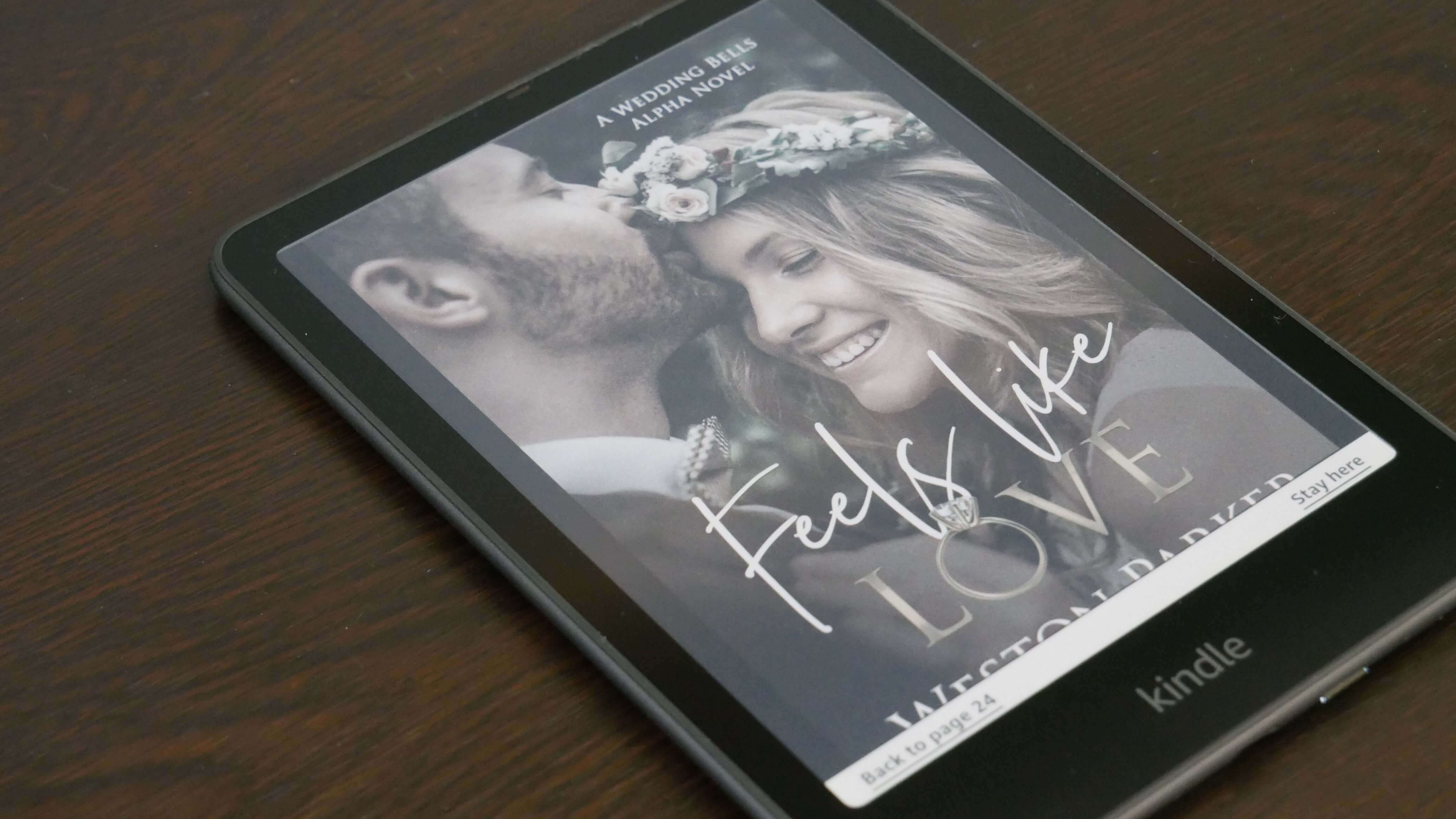Every reader is different, so it makes sense that their reading weapon of choice also varies. And today we’ll be taking a look at tablets and how they fare as reading devices. If you’ve been debating if you should get one for reading purposes… we’ll cover all the relevant bases below.
Advantages of Using a Tablet
If you’re considering a tablet, one super important factor to keep in mind is that its benefits can go beyond reading options. From screen size to versatility, it has plenty to offer.
Focusing on Reading
Tablets come in all shapes and sizes, making it much easier to find one that fits your specific needs. However, they do on average have a larger screen than regular e-readers.
This can make it easier to read more comfortably, lowering the strain on your eyes. That’s especially true if you pair a larger font with settings tailored to shield your eyes from blue light.
Speaking of the screen, the settings for tablets are highly customizable, so you can easily adjust things such as brightness. To make this even simpler, you can set it to automatically change brightness, so it adjusts according to whether you’re in a dimly lit area or under the sun.
On top of this, there are countless apps specifically tailored to readers that you can install: it’s not just Kindle! Some, like Noteshelf, feature the ability to add notes, highlight text, and interact with the content easily. Great for studying or wading through a complicated book!
And if you enjoy reading comic books, the color screen will be more suitable than regular e-readers (which are pretty often only available in black-and-white). Tablets also support audiobooks, so you can easily listen to any book you want via apps like Spotify and Audible.
Pros Beyond Reading
But tablets aren’t just about reading! They’re highly versatile devices that allow you to enjoy multiple other activities. This is ideal if you sometimes need a break from the books.
One great example would be gaming, as you’ll have access to the app store, letting you download any game you wish to play. This mirrors a smartphone’s capabilities, so we won’t delve too much into this… But suffice it to say, you’ll be able to enjoy anything from tower defense games like Plants vs. Zombies 2 to puzzle options like Sudoku.
And as tablets come equipped with a browser, you’ll also have access to browser games. Here, we can use an example from the world of online casinos, which offer a wide selection of games like blackjack online. So, via your tablet, you could play blackjack online variants such as European Blackjack and Pontoon 21. There are tons of variants and the cards will look great on a crisp, sharp tablet screen.
In addition, thanks to how powerful modern tablets are, you’ll also be able to access all of the same features as on your PC. So, if you want to play a live game of blackjack, you won’t have to worry about a decrease in quality.
For those who haven’t heard of this type of game and might not understand the significance, we’re happy to clear things up! Here, players get to play against a human dealer streamed via audio and video feeds.
In the same vein, as you have access to your browser, you’ll be able to browse the web, looking up restaurant recommendations or answering questions. You can also install any other type of app you may want – from Duolingo to budgeting tools to Netflix.
All of this can make it easier for you to have an all-in-one tool, rather than just investing in a single-purpose device. Versatility can be a real winner.
Addressing the Disadvantages
While tablets are a fantastic option for both readers and those planning to use them for other purposes, there are some drawbacks to note. After all, without this information, you wouldn’t get the full picture you need to make a more informed decision.
We’ll start this off with the fact that the battery life tends to be much shorter than that of common e-readers. This is because you can do so much more on it, so there’s more going on in the background draining the battery.
To add to this, even a smaller gadget like the Apple iPad Mini is still typically heavier and bulkier than options like the Kindle. This can hinder its portability, something you’ll need to consider if you’re planning to take it on the go.
They also tend to be more prone to damage like cracks due to the materials utilized. By contrast, e-readers are usually made of plastic, meaning they can survive a pretty substantial fall with minimal damage.
Lastly, tablets don’t offer the same paper-like feeling of an e-ink screen. You can remedy this with a special screen cover, but the texture difference is pretty noticeable.
Conclusion
If you’re a casual reader, a tablet will be a great tool to enjoy books, comics, and even gaming if the mood strikes. However, if you value simplicity, durability, and a better battery lifespan, an e-reader might work better. Regardless of your ultimate pick, we hope that the aforementioned has made the arduous task of choosing easier.
Markus lives in San Francisco, California and is the video game and audio expert on Good e-Reader! He has a huge interest in new e-readers and tablets, and gaming.

